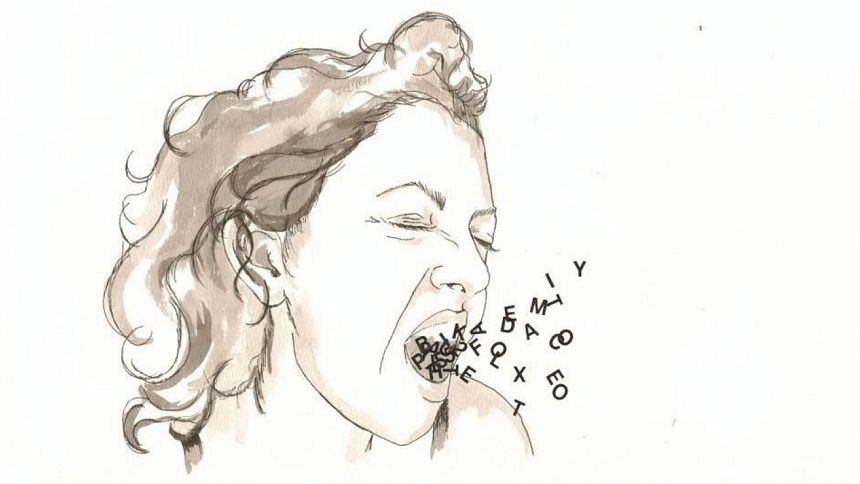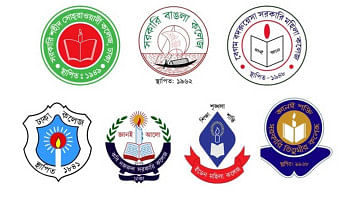Words, words everywhere, but not one to trust…

The power of words can move a nation to war, or spread the spirit of love and hope, and in-between, arouse a whole range and scale of passions and emotions in men that may change their fortunes forever. Its usage, a social construct by all means, is, as ever, a slippery slope. Spontaneous or unconsidered utterances in this age of unbridled communication are a tricky business. One knows how political correctness still holds sway despite being frowned upon for its widespread misappropriation in taking sides on the wrong side of history. As for the old-school spontaneous "plain-speak", it lost traction in social-digital media, where words are particularly "stylised" for the desired communal effect. In articulating oneself, one cannot passively fall back on habit and custom. If you are to be taken seriously, you must keep abreast of the "in-vocabulary"; in that way, it is an ongoing process of performative re-skilling, if you may. Far from being abstract notions composed in the head, articulations are multi-dimensional, embodied acts generated within the ambit of a certain time-space context.
So in social networks, one must carry the stressful burden of a profound and acute awareness of the determinative protocols that supervise one's interaction with others. The socially adept conversationalists are constantly engaged in a guessing game in order not to be checkmated in any given situation, since it is common knowledge that his/her interlocutor is masquerading an adopted language that takes a bit of wit on his/her part to volley. "Bandying words", despite its association with playfulness, reads more like a violent game, which burns one out—a curious case of "word-stress".
On another note, time—be it a dimension holding the universe and beyond together or what the corporate Mad Hatter chases in order to remain ahead in the race towards an elusive goal—has always been held responsible for the shifts and changes that mark the history or evolution of words. History? Isn't it always already inflected with memory and hindsight? The past becomes a narrative strung together with words, albeit seen through the semantic lens of the present. But the present is also a consequent of the past, as the shape-shifting social ego is but a receptor that seamlessly gleans and re-enforces itself in a landscape of shifting hermeneutics or changing legibility of meanings. In such a state of flux, how are we to know if the words we hear carry any familiar, fixed meaning?
Segueing back to the question of the reliability of words, it is undeniably looped in a chain of referential, connotative springing from contexts that spasmodically change their contours with each iteration. Taken out of context or emplaced in a totally different configuration of social relation, the same utterances relay differing messages. Even term of endearments can be quite vexing to a receiving ear if it is perceived to be a part of a hierarchising tactic "putting you in your place".
In every field of social production, notably those which are technology/information-driven, it is an incontestable fact that the boon or bane of the all-consuming matrix of social media looms large with its own scheme of sociality—in which the channel of communication is a language disembedded from the real-time community culture, and conversely, is somewhat generic, and intensely encoded, unlike the fluid, sinuous exchanges of words that animate the daily splay of quotidian life. What apparently seems to govern this virtual playground is the pseudo-politics of a sub-language, paradoxically stripping—with due respect to immeasurable exceptions—the unwitting user of his agential role in expressing one's autonomous opinion, only to latch him onto a pre-furnished virtual circuit of articulation. In fact, without a wisp of a doubt, the visual is the text here—semiotics of signs imbuing words with esoteric meanings. Not saying words is not always caught up in the maze of a signifying field, but it is probably a utopic nostalgia that compels one to naively rely on words as they used to be (before structuralism and every possible celebralising theorisation that led to a complex system of analysis) to convey meaning, however much may they be steeped in underlying or overlaying intimations, with less critical communicability. Something to be taken at face value and trusted.
Words, thus, with their subterranean labyrinth of endless meanings sometimes hover portentously, poised to break the surface of the complacent civicness and sacrosanct stability of so-called polite society. Should an aggrieved member of society vent his disappointment with some measure of vehemence, this so-called misconduct is more or less tolerated, if not with a silent grunt, then with a mild reprimand. Because bandying (cuing from what was previously said) words has become a national habit that comes unfailingly garnished with violence and crude innuendos. Missives fly in the air like dandelions in autumn. Those who navigate through the vagaries of life with some degree of dignity do so with the help of deft manipulation of words or the symbolic order that elevates us from a state of unconscious to a conscious assimilation of subjecthood.
Those who read "Alias Grace" would remember the novel based on a real-life story to be fascinating for its fantastic fabulism—a minor servant girl accused and convicted for murder! Her confessions liable to be interpreted in light of legal, medical and spiritualist discourses of a historical era are plotted cleverly by Margaret Atwood to expose the inevitable run-in between truth and falsehood. Makes one wonder whether words really have any true value.
Throughout this hypothetical rambling, the term "word" won preference over that of "text", which is ontologically laden with signs/significations that precariously invoke multiple legibility that run the whole gamut of sensorial as well as paradigmatic perceptions. Texts glare out of billboards, the dubious fine print on bank statements, and of course machine-readable bar codes—it's a sticky area! Who would not pitch for plain and simple words per se taken in simplistic parlance, which poses less threat and causes little angst, any day?
Now, to diffuse the seriousness, let's turn to colloquialism or its distant cousin—slang! Its trajectory over time seems to emulate the Darwinian theory of evolution, in so far as it follows "survival of the wackiest" choice of words. "Polapainra ajkal boroi pera dey!" Well, these wisecracks on my part often meet with blank stares owing to their sheer unintelligibility. Shame on me for being a relic from the Jurassic era!
Though it seems repetitious, it cannot be stressed more that the valence of words is time-sensitive. Going back to the history of resistance, the pejorative terms "black'' and "native'' were adopted as identity markers by the subalterns to organise against the so-called masters. However, with time these symbolic instruments of reclamation too donned a new garb (or the emperor's new clothes?)—one of concessional empowerment in lieu of majoritarian enfranchisement. Or, take for instance the post-truth era of Trumpian carnivalesque, where false statistics are shamelessly and indiscriminately spewed out to furnish a fake claim or to prevalently thwart the most pressing concerns of the time.
On the home turf, we are blessed to have found a mother who succeeded in sweeping the whole of humanity under her wings. Are you still questing for meaning? When the "white middle-class man" carries out a gruesome shoot-out and is soft-pedalled into being identified a lone wolf and not a terrorist, do you not feel hit on the face by the blanketing blindness of linguistic politics?
Yet dreams are still expressed in words before translating in deeds! We need to continue to hear multiple voices speaking multiple narratives, especially when the world progressively seems to be overcast with a pall of gloom. Let words light up all corners of darkness. Let hope survive!
Sharmillie Rahman is a writer and Co-founder, Duraree Art Café.

 For all latest news, follow The Daily Star's Google News channel.
For all latest news, follow The Daily Star's Google News channel. 



Comments